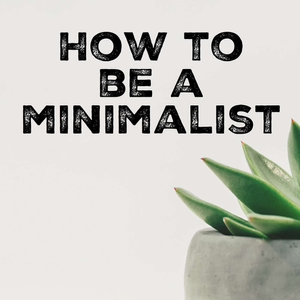
A Review of a Study, Regarding the End of Life, the Presence of Chronic diesease and Emergency Department visits
12/05/22 • 16 min
The end of life is marked by various symptoms that might not always be immediately recognizable, and there often comes a phase where a person's health begins to decline from its usual state. Being able to discern the signs of impending natural death can be crucial for both the individual and their loved ones. It provides an opportunity to prepare and make necessary arrangements. From handling paperwork and bills to completing an end-of-life advanced directive form and other essential documents, there are several practical tasks that need attention. Additionally, decisions regarding burial versus cremation, choosing suitable burial ideas and memorial options, and discussions on caregiving play a significant role during this delicate season. Engaging in open and compassionate conversations with your loved ones about these matters can help you navigate the end-of-life journey with greater understanding and acceptance.
Join the conversation with your host, Marie Betcher, as she discusses a study by JAMA Network Open on Death and End-of-Life Care in Emergency Departments in the US to help increase awareness of the signs and symptoms of the end of life to avoid emergencies. By understanding these indicators, we can take proactive steps to prevent emergency situations and ensure more compassionate and appropriate end-of-life care.
Tune in!
Key Highlights from the Episode;
[00:30] Intro and what in for you in today’s show
[01:47] JAMA Network study and results and Marie's goal for the discussion
[03:14] Multiple chronic conditions and what they are
[04:44] Signs and symptoms of decline in the end-of-life season
[06:54] Having conversations and making preparations for the end-of-life care
[08:37] Recognizing when your loved one needs end-of-life care and focusing on comfort
[10:07] When CPR is appropriate and most difficult for patients
[13:33] Making the best choices early and getting the right care team in place
[14:23] How end-of-life care help in processing grief more positively
[15:56] Wrap-up and end of the show
Notable Quotes● The end-of-life has many symptoms that we don’t always recognize, but like pregnancy and birth, there is often a season where there is a decline in a person’s normal state of health. [01:35]
● When multiple disease processes are in place for yourself or a loved one, and there are signs of decline, it may be the end-of-life season. [04:31]
● The dying process may begin a year or several years before someone's death. [05:52]
● The hardest truth is that every single one of us will die, so it’s very helpful to have made preparations ahead of that time. [07:28]
● Each of us needs to be responsible for our own follow-up care, so you might be the one to bring up the hard questions. [15:26]
Resources MentionedReference article: https://jamanetwork.com/journals/jamanetworkopen/fullarticle/2798153
Let’s Connect
Marie's Contact: [email protected] www.hospiceexplained.com http://buymeacoffee.com/hospice [email protected] Leave a Voicemail: 206-705-3080
The end of life is marked by various symptoms that might not always be immediately recognizable, and there often comes a phase where a person's health begins to decline from its usual state. Being able to discern the signs of impending natural death can be crucial for both the individual and their loved ones. It provides an opportunity to prepare and make necessary arrangements. From handling paperwork and bills to completing an end-of-life advanced directive form and other essential documents, there are several practical tasks that need attention. Additionally, decisions regarding burial versus cremation, choosing suitable burial ideas and memorial options, and discussions on caregiving play a significant role during this delicate season. Engaging in open and compassionate conversations with your loved ones about these matters can help you navigate the end-of-life journey with greater understanding and acceptance.
Join the conversation with your host, Marie Betcher, as she discusses a study by JAMA Network Open on Death and End-of-Life Care in Emergency Departments in the US to help increase awareness of the signs and symptoms of the end of life to avoid emergencies. By understanding these indicators, we can take proactive steps to prevent emergency situations and ensure more compassionate and appropriate end-of-life care.
Tune in!
Key Highlights from the Episode;
[00:30] Intro and what in for you in today’s show
[01:47] JAMA Network study and results and Marie's goal for the discussion
[03:14] Multiple chronic conditions and what they are
[04:44] Signs and symptoms of decline in the end-of-life season
[06:54] Having conversations and making preparations for the end-of-life care
[08:37] Recognizing when your loved one needs end-of-life care and focusing on comfort
[10:07] When CPR is appropriate and most difficult for patients
[13:33] Making the best choices early and getting the right care team in place
[14:23] How end-of-life care help in processing grief more positively
[15:56] Wrap-up and end of the show
Notable Quotes● The end-of-life has many symptoms that we don’t always recognize, but like pregnancy and birth, there is often a season where there is a decline in a person’s normal state of health. [01:35]
● When multiple disease processes are in place for yourself or a loved one, and there are signs of decline, it may be the end-of-life season. [04:31]
● The dying process may begin a year or several years before someone's death. [05:52]
● The hardest truth is that every single one of us will die, so it’s very helpful to have made preparations ahead of that time. [07:28]
● Each of us needs to be responsible for our own follow-up care, so you might be the one to bring up the hard questions. [15:26]
Resources MentionedReference article: https://jamanetwork.com/journals/jamanetworkopen/fullarticle/2798153
Let’s Connect
Marie's Contact: [email protected] www.hospiceexplained.com http://buymeacoffee.com/hospice [email protected] Leave a Voicemail: 206-705-3080
Previous Episode

How to Become a Death Doula: Linde Carter's Insight On Death Doula Compassionate Support
How to Become a Death Doula: Linde Carter's Insight On Death Doula Compassionate Support
Linde Carter, MA, RN, NC-BC, CEOLD, CGD
Becoming a death doula is a profound, compassionate, and heart-centered journey that involves providing support and comfort to individuals and their families during the end-of-life process. To embark on this path, you don’t need a medical background. You need genuine passion and training on the different services that death doulas offer. Equipped with these essential tools, a death doula can bring immeasurable value to those facing mortality, easing their fears and uncertainties with compassionate care. For families seeking an ideal death doula who aligns with their goals, asking the right questions will enable you to identify one with a good track record of professionalism, ethical conduct, and respect for diverse cultural and religious beliefs. In this episode with Linde Carter, we discuss what a death doula is, what they do and the pathway to becoming one. We also explore how families can find a death doula who aligns with their goals, values, and beliefs to ensure a harmonious and supportive experience during life's most challenging moments.
Linde Carter is a death doula and grief coach. Linde has been a registered nurse for almost 25 years and has spent more than half of that time as a hospice nurse and palliative care nurse at the bedside in patients’ homes and long-term care facilities, in quality management and nursing management. She is also a board-certified nurse coach specializing in loss, grief, transition, and end-of-life coaching. As a certified end-of-life and grief doula, Linde has her own private coaching and doula practice, Simplicity Transition. Like so many others, Linde has encountered and struggled with loss in her life from early on, and she learned that grief is not just about loss through death; it’s simply about loss of any kind.
Linde is passionate about supporting anyone experiencing any kind of loss or grief, anyone facing chronic, life-threatening illness and end of life, and anyone who may feel ready to move forward and carry their grief in a new way that is comfortable and healthy for them. Through grief and end-of-life coaching, Linde creates a space for others to know it’s okay to be vulnerable, scared, and even hopeless and to not always have the extra strength to keep moving forward and to hold that space for openness, honesty, support, and hope. She also currently has an active Facebook Group, Growing Through Grief, and is happy to allow anyone to join.
Tune in!
Key Highlights from the Episode;
[00:30] Episode intro and a quick bio of the guest; Linde Carter
[04:24] Linde's personal and nursing background and how it weaved her way into death doula
[07:59] What a Death Cafe is and why Linde Death Positive Talks are different
[12:44] What inspired Linde to go above and beyond working as a hospice nurse
[15:01] The benefit that the hospice Linde works with provides that makes them stand out
[18:46] The nitty gritty of what a death doula does for people and the cost involved led
[23:01] How much time Linde spend working as a death doula, and her goals
[23:45] How Linde works with families in grief and the time she spends with them
[25:38] Requirements and qualifications and how long it took Linde to become a death doula
[27:42] Things to consider when looking for a good death doula training company
[30:36] The best ways for families to find the best death doulas or end-of-life doulas
[31:41] Book and courses that Linde recommends for end-of-life doula or care
[33:24] The kind of questions to ask death doulas to find out if they align with your goals
[38:34] Linde's final words about death doula or end-of-life doula
[39:21] Why grief is so undermanaged and Linde's experience after losing her father
[42:46] Diversifying your career and how Linde balances the different wheels
[45:23] How to reach out to Linde and get help, support, or learn more about their offers
[46:58] Wrap-up and end of the show
Notable Quotes● We prepare for everything else in our life, but we don’t plan for our death and don’t want to think and talk about it. [07:04]
● When you are looking for a hospice organization, you may be pushed to it because it is last minute, but don’t just take the words of whoever is referring you to hospice, do your own research to find out the best; if you sign on with a hospice organization and you are not happy with it, ditch them and go somewhere else, there are good one out there, and you deserve the care and benefits [14:27]
● You don’t have to have a medical background to be a death doula; you just need to have a heart for the work; there are different courses available, and you need to get training on the different services you can offer. [26:06]
...Next Episode

Hospice vs. Home Health Care: Knowing the Difference for Your Loved Ones with Nurse Hadley
Hospice care is a compassionate and essential service that aims to improve the quality of life for patients with terminal illnesses. Contrary to misconceptions, hospice does not hasten death; rather, it focuses on providing comfort and support during the natural progression of the illness. This form of specialized care not only helps individuals live longer but also enhances their overall well-being. Hospice care offers a range of services tailored to each patient's unique needs, including pain management, emotional support, and spiritual guidance. It differs from home health care in that it concentrates on alleviating symptoms and enhancing the patient's end-of-life experience rather than curative treatments.
Those who give hospice a try, often find solace and comfort in this new routine. The hospice team is available 24/7, making it reliable and different from home health care. This accessibility means that patients can avoid unnecessary visits to the emergency room by contacting hospice for immediate assistance, which is truly a game changer. Choosing hospice care allows patients and their families to make the most of their precious time together, finding comfort and support during a challenging phase of life.
Join the conversation with Nurse Hadley as she shares her stories and life lessons from the perspective of being a Hospice nurse, momma, wife, and author of a New York Times best-selling book -The In-Between: Unforgettable Encounters During Life's Final Moments. Nurse Hadley is a Passionate advocate for end-of-life care and a TikTok star who shares moving stories of joy, wisdom, and redemption from her patients’ final moments.
Tune in!
Key Highlights from the Episode;
[00:30] Episode intro and a quick bio of the guest; Nurse Hadley
[01:43] Nurse Hadley’s backstory and how she started out in hospice education
[03:14] What Nurse Hadley does on Instagram and TikTok
[04:35] Nurse Hadley’s book project, The In Between, and her goals
[05:41] A story in Nurse Hadley's book that describes the most difficult patient death for her
[06:56] Something important that you should know about Hospice
[08:22] What Nurse Hadley recommends patients focus on when on hospice service
[11:30] A question Nurse Hadley often gets from patients on Instagram and TikTok
[12:53] The time Nurse Hadley spends touching base with people to give them comfort
[14:08] Why hospice and whatever it does, does not kill patients; it’s the illness
[16:41] Hospice comfort care and how it helps people live longer
[18:27] The difference between home health care and hospice care
[19:23] What inspired Nurse Hadley to get into hospice care space
[22:07] How to get Nurse Hadley's book and about her Nonprofit hospice house goals
[24:33] How to reach out and connect with Nurse Hadley
[24:54] Wrap-up and end of the show
Notable Quotes● Give hospice a try; 90% of people do that, and they get comfortable in their new routine with hospice, and they wouldn’t have had that comfort if they hadn’t given it a trial. [07:31]
● You should always read the directions on the label of the medicine bottles and the written directions given in an after-visit summary; there are multiple medicines in comfort care; read and follow directions, and if you have any questions, call the hospice care team, that what they are there for.”. [16:11]
● The aids that hospice provides and the 24-7 availability makes it different from home health care; whenever you don’t have to go to the ER because you can call hospice, that is a game changer. [18:40]
Resources MentionedNurse Hudley Book: https://www.amazon.com/Between-Unforgettable-Encounters-During-Moments/dp/059349993X
Get more information about Nurse Hudley Non-Profit Hospice House: https://www.instagram.com/p/CKKKYKLjWIW/?utm_source=ig_web_copy_link&hl=en
Let’s Connect
Nurse Hudley
Website: https://nursehadley.com/
Instagram: https://www.instagram.com/nurse.hadley/?hl=en
Facebook: https://web.facebook.com/NurseHadley/?_rdc=1&_rdr
YouTube: https://www.youtube.com/@NurseHadley
If you like this episode you’ll love
Episode Comments
Generate a badge
Get a badge for your website that links back to this episode
<a href="https://goodpods.com/podcasts/hospice-explained-249336/a-review-of-a-study-regarding-the-end-of-life-the-presence-of-chronic-28547100"> <img src="https://storage.googleapis.com/goodpods-images-bucket/badges/generic-badge-1.svg" alt="listen to a review of a study, regarding the end of life, the presence of chronic diesease and emergency department visits on goodpods" style="width: 225px" /> </a>
Copy




